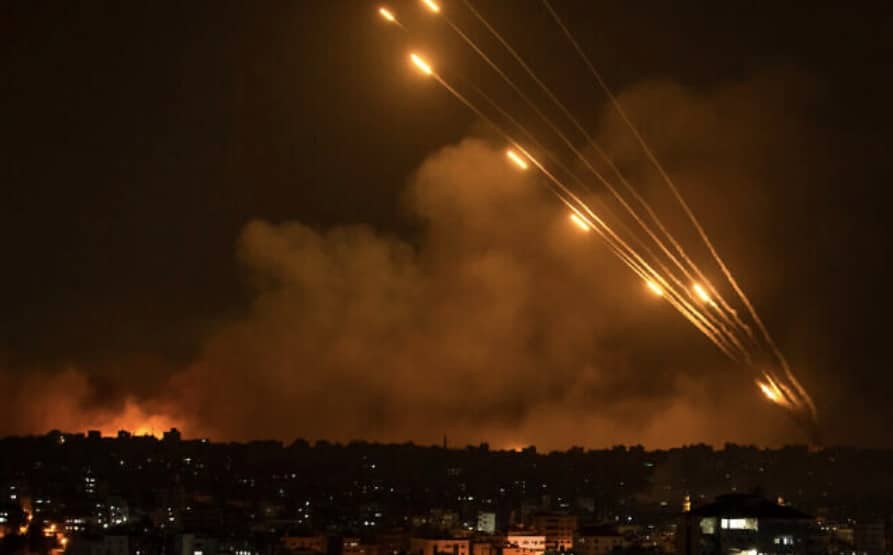Operation Iron Swords
In the intricate labyrinth of Middle Eastern geopolitics, another significant development has emerged, igniting further discussion on regional security and international relations. The Israeli Defense Forces (IDF) have reportedly executed strikes on Syrian airports. These military actions are purportedly aimed at halting the flow of arms shipments emanating from Iran, a country that has long been accused of fueling conflicts in the region.
Read our previous posts to learn more:
- Hamas Kidnapped and Murdered Civilians – Elderly, Women, Children and Even Babies
- 5,000 Rockets Fired on Israel, Towns Occupied by Hamas, Dozens of Civilians Killed and Kidnapped
- Israel-Gaza Conflict: Benjamin Netanyahu Declares a State of War
Context and Background
Iran’s support for various militant groups across the Middle East, including Hezbollah in Lebanon and assorted factions in Syria, has been a contentious issue. The international community, spearheaded by Western powers, has continually expressed concerns over the potential escalation of hostilities, and the consequential threat to peace and security.
The Operation Unfolds
Details are still emerging, but preliminary reports suggest that the IDF executed precise and calculated strikes to incapacitate key infrastructures at Syrian airports. These are believed to be pivotal transit points for Iranian arms shipments. The operation’s success or fallout is yet to be comprehensively assessed.
These developments bring forth an array of implications. Israel’s decisive action underscores its commitment to national security and its zero-tolerance policy towards perceived threats. However, it also raises questions about the sovereignty of nations and the fine line between defensive maneuvers and acts of aggression.
The Global Echo
The international response has been mixed. While some nations tacitly support Israel’s right to defend itself, others express concerns over the potential for escalation and the need for diplomatic channels to address regional conflicts. Amidst this, the role of international organizations, including the United Nations, is once again highlighted, prompting discussions on their effectiveness and relevance.
Conclusion
The IDF’s strikes on Syrian airports to block Iranian arms shipments is emblematic of the complex and multifaceted nature of Middle Eastern geopolitics. It encapsulates the continual balancing act between national security, international law, and the quest for a durable peace in the region. As the world observes, analyzes, and reacts, the unfolding events could potentially redefine the dynamics of power, alliances, and diplomacy in one of the world’s most volatile regions.

